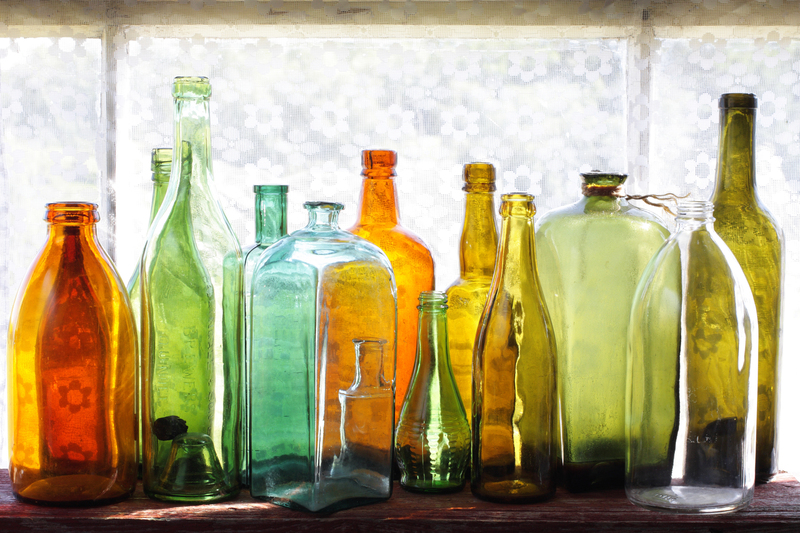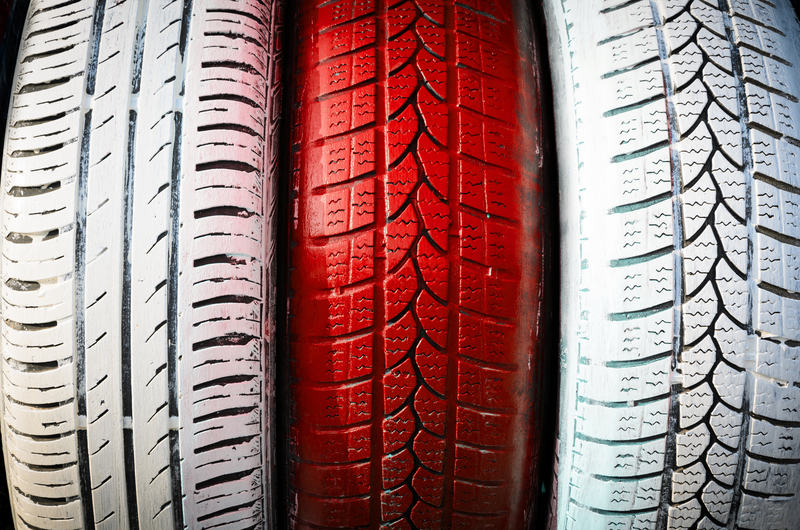Why Recycling Pots and Pans Matters for the Planet
In today's world, sustainability and environmental conservation are more than just buzzwords--they are responsibilities for every global citizen. Among the lesser-known yet impactful actions is recycling old pots and pans. While household cookware may not seem like a significant threat to our planet, improper disposal can have serious environmental consequences. If you're wondering about the importance of recycling pots and pans, how to do it, and the positive effects on Earth, read on for a comprehensive guide.
The Hidden Environmental Impact of Discarded Cookware
When old or damaged pots and pans end up in the trash, they're usually destined for landfills. This seemingly harmless act actually has long-lasting effects on the environment. Here's why:
- Heavy Metals Leaching: Non-recyclable cookware often contains metals such as aluminum, stainless steel, copper, and even non-stick coatings with potentially hazardous chemicals. Over time, these can leach into the ground, contaminating soil and water sources.
- Clogging Landfills: Pots and pans are not biodegradable. Once dumped, they may remain in landfills for hundreds--or even thousands--of years, taking up valuable space.
- Resource Depletion: When new cookware is manufactured from raw materials, a significant amount of natural resources such as iron ore, bauxite (for aluminum), and fossil fuels for energy are consumed. Recycling helps preserve these materials for future generations.

Understanding Cookware Materials and Recycling Potential
Different types of cookware are made from various materials, each with its own recycling process and benefits. Understanding what your pots and pans are made of can help in determining the best way to recycle them.
Common Materials in Pots and Pans
- Aluminum: Highly recyclable and valuable. Aluminum pans are lightweight and often used for their fast heat conduction.
- Stainless Steel: Durable, rust-resistant, and fully recyclable. Stainless steel creation requires significant energy, so recycling is especially impactful.
- Copper: Known for its excellent heat distribution. Copper is a precious resource, easily recycled again and again without loss in quality.
- Cast Iron: Heavy and virtually indestructible. Although not accepted by every curbside program, scrap metal centers can reclaim the iron.
- Non-Stick Coatings: Pans coated with Teflon or similar chemicals must be handled carefully, as these coatings can release toxic substances.
Challenges in Recycling Cookware
Not all recycling centers accept cookware, especially those with plastic handles or non-stick coatings. Here's how to maximize your recycling efforts:
- Remove handles or lids made of plastic or wood before recycling the metal portion.
- Check with your local recycling facility regarding their policy on non-stick pans.
- If curbside recycling doesn't accept pots or pans, locate a scrap metal recycler in your area.
The Broader Environmental Benefits of Recycling Cookware
Why does recycling cookware matter so much for our planet? The advantages ripple through many levels of the environment:
1. Conservation of Natural Resources
Metals like aluminum, steel, and copper are obtained through mining, a process that disrupts ecosystems and depletes finite natural stores. When you recycle cookware, you reduce the need for raw material extraction and preserve resources for the future.
2. Energy Savings
Producing metals from scratch is extremely energy-intensive. For example, recycling aluminum uses 95% less energy than creating it from bauxite ore. By sending old pans to the recycling bin instead of the landfill, you're also slashing carbon emissions and fossil fuel usage.
- Producing new steel from recycled scrap saves 70% energy, according to the U.S. Environmental Protection Agency.
- Recycling one ton of aluminum pots and pans saves the energy equivalent of driving a car 2,800 miles.
3. Pollution Reduction
From toxic runoff at mining sites to airborne pollutants from metal refineries, the production of new pots and pans generates considerable environmental pollution. Recycling drastically cuts these pollution levels, offering cleaner air and water for all.
4. Landfill Space Reduction
Landfills are filling up fast! Large metal objects like pots and pans take up a lot of space. Recycling ensures that these items can be reused, extending the life of landfills and reducing the need for new landfill sites.
How to Recycle Old Pots and Pans Effectively
The next time you're ready to toss out a battered pot or a pan with a peeling coating, pause and consider a greener option! Here's how you can responsibly recycle cookware:
Step-by-Step Guide to Recycling Pots and Pans
- Check Local Guidelines: Municipal recycling rules vary. Visit your city's website or call your waste management provider to find out if they accept cookware.
- Prepare Cookware: Remove non-metal parts such as handles, knobs, and glass lids, separating them for proper disposal.
- Sort by Material: If you have a batch of pots and pans to recycle, sort them by material type--aluminum, copper, steel--to streamline processing at the recycling center.
- Drop Off at a Scrap Yard: If curbside isn't an option, search online for a local scrap metal recycling facility. These centers accept almost any metal item and may even pay for certain metals.
- Consider Donation: If your pans are still functional, donate them to a charity, thrift store, or community kitchen. Reuse is the greenest form of recycling!
Alternative Creative Uses for Old Cookware
Not every old pan needs to be melted down to serve a new purpose. Upcycling gives new life to old cookware, keeping them out of landfills and enabling you to express creativity.
- Garden Planters: Old cast iron pans and pots make excellent containers for flowers and herbs.
- Bird Feeders: Hang upturned pans on trees to create quirky bird feeders.
- Wall Art: Arrange an artful display of colorful pans and lids on your kitchen or garden wall.
- Creative Storage: Use deep pots as storage bins or holders for tools, art supplies, or craft materials.
Common Myths and Misconceptions about Recycling Cookware
Let's bust a few myths that often discourage people from recycling their pots and pans:
- "My pots and pans are too dirty to recycle."
While it's helpful to clean off excess food or oil, recycling centers have equipment to handle moderate grime and residue. - "Non-stick pans can't be recycled at all."
Some scrap yards accept non-stick pans, but always check in advance as requirements vary. - "All recycling programs are the same."
Every locality is different. Some accept household metal items, others require drop-off at a specific location. - "It's not worth the trouble for a few pans."
Even recycling one pan helps conserve resources, reduce pollution, and protect the environment!
The Global Impact: A Small Act, A Big Difference
It might seem insignificant to recycle a single pan, but the numbers add up quickly. Imagine if every household in your city committed to responsible cookware disposal!
- With millions of households worldwide, even small changes in recycling behavior accumulate into massive environmental gains each year.
- By reducing resource extraction and keeping metals in use, you're helping lower greenhouse gas emissions globally.
- Recycling materials helps create jobs in the recycling industry and supports the circular economy, fostering sustainable growth.
What Happens After You Recycle Pots and Pans?
Curious where your recycled pans go? Once dropped off, they follow this general path:
- Sorting: Items are sorted by metal type.
- Processing: Cookware is shredded and cleaned to remove any coatings or contaminants.
- Melting: Metals are melted down and poured into molds to create new raw materials.
- Manufacturing: The recycled metal is sold to manufacturers who use it for new products--possibly even new pans!

How to Build Greener Kitchen Habits
Recycling pots and pans matters, but you can amplify your eco-impact by making sustainable choices before you even buy. Consider:
- Choosing Durable Cookware: Invest in high-quality pots and pans that are built to last, reducing overall waste.
- Avoiding Disposable Cookware: Steer clear of single-use pans. Opt for multi-purpose, reusable options.
- Supporting Recycled Brands: Some companies produce cookware from recycled materials. Buying these encourages the market for sustainable goods.
Conclusion: Your Role in a Healthier Planet
Every time you recycle an old pot or pan, you take a stand for the environment and help pave the way for a greener future. By diverting durable goods like cookware from landfills, you're actively reducing pollution, conserving precious resources, and setting an example for your community.
Next time you upgrade your kitchen, remember: proper recycling of old cookware matters for the planet. With a few extra steps, you're not just clearing out clutter--you're making a difference.
